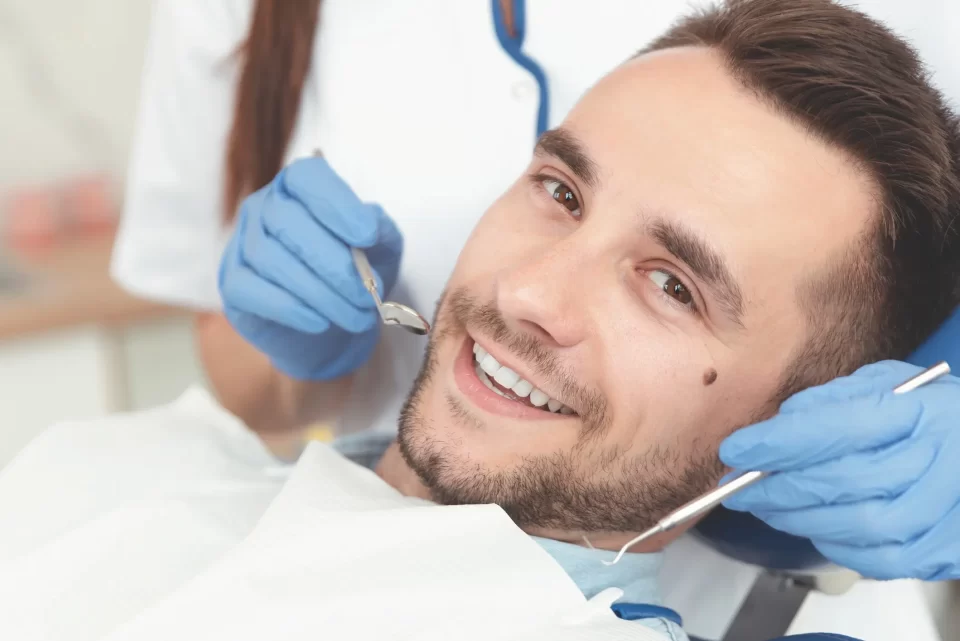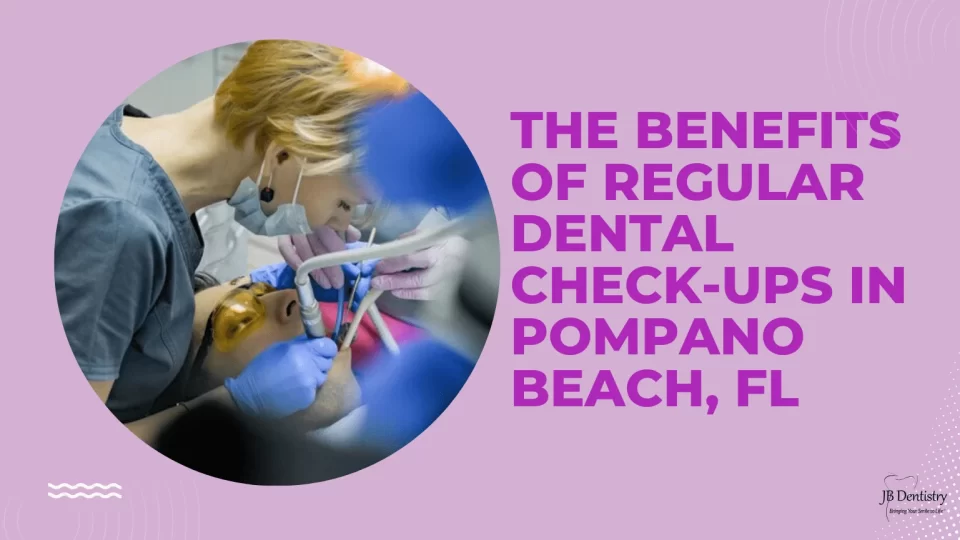Most people view professional teeth cleanings as a routine chore, a biannual appointment to keep their smiles bright and breath fresh. But what if these visits were doing much more than just maintaining oral hygiene?
Emerging evidence suggests that professional dental cleanings are a critical checkpoint for early detection of systemic health issues—especially autoimmune conditions. Dentists, through careful examination during cleanings, can identify subtle signs of diseases that often go unnoticed until more severe symptoms emerge.
The mouth is a window into the body’s overall health, and professional teeth cleanings provide a unique opportunity to observe changes that might indicate the onset of autoimmune disorders. Recognizing these early signs not only helps in timely diagnosis but also improves patient outcomes by enabling earlier intervention.
How Can Professional Teeth Cleaning Help Detect Autoimmune Conditions Early?
Professional teeth cleaning is far more than a cosmetic treatment; it’s a thorough examination of the oral environment. During these cleanings, dental hygienists and dentists can observe changes that serve as early red flags for autoimmune disorders. Here’s how:
- Close Inspection of Soft Tissues: Teeth cleaning involves examining gums, tongue, cheeks, and the roof of the mouth, where signs of autoimmune activity often first appear.
- Identification of Unusual Lesions or Ulcers: Persistent sores or patches may indicate diseases like lupus, pemphigus vulgaris, or lichen planus, which frequently manifest orally.
- Monitoring Gum Inflammation Beyond Typical Gingivitis: While gum inflammation can result from poor hygiene, excessive or unusual inflammation can signal conditions like rheumatoid arthritis or Sjögren’s syndrome.
- Detection of Dry Mouth Symptoms: During cleanings, the mouth’s moisture level is assessed. Dryness may point to autoimmune diseases affecting salivary glands, such as Sjögren’s syndrome.
- Observation of Mucosal Color and Texture Changes: Discoloration, thinning, or thickening of the oral mucosa can hint at systemic autoimmune issues.
- Tracking Changes Over Time: Regular cleanings provide a timeline of oral health, allowing dentists to notice progressive changes warranting further investigation.
- Collaborative Care: When suspicious signs are observed, dentists can refer patients for medical evaluations, facilitating early diagnosis of systemic autoimmune conditions.
Teeth cleanings act as vital screening moments that extend well beyond plaque removal, giving dental professionals a window to catch systemic disease early.
What Signs of Autoimmune Diseases Can Be Observed During Dental Cleanings?
Autoimmune diseases encompass a broad spectrum of disorders where the immune system mistakenly attacks the body’s tissues. Many of these disorders show distinct oral signs—often before patients experience other symptoms. During dental cleanings, practitioners look for:
- Oral Ulcers and Sores: Painful, persistent ulcers that do not heal within two weeks can indicate autoimmune conditions such as lupus erythematosus or pemphigus vulgaris.
- Dry Mouth (Xerostomia): Reduced saliva production, causing dry and cracked mucosa, is a hallmark of Sjögren’s syndrome, a common autoimmune disease.
- Red or White Patches: Lichen planus, an autoimmune condition, can cause white lace-like patches or red swollen areas on the oral mucosa.
- Gum Disease Beyond Typical Causes: Severe or rapidly progressing periodontitis may be associated with systemic diseases like rheumatoid arthritis or Crohn’s disease.
- Burning Sensation or Sensitivity: Some autoimmune conditions cause neuropathic pain or mucosal sensitivity detectable during examination.
- Swelling or Enlargement: Salivary gland enlargement can signal Sjögren’s or sarcoidosis.
- Tooth Mobility or Bone Loss: Accelerated bone loss around teeth without clear dental causes may suggest systemic autoimmune involvement.
- Oral Candidiasis or Infections: Autoimmune diseases and their treatments can predispose patients to opportunistic infections visible during cleanings.
These signs, often subtle, require a trained eye to detect and differentiate from routine oral issues, underscoring the importance of professional evaluations.
Why are Dentists Important in Identifying Potential Autoimmune Disorders?
Dentists occupy a unique frontline position in healthcare because they regularly examine areas often overlooked by other medical specialists. Here’s why their role is indispensable in detecting autoimmune diseases:
- Regular Access to Patients: Many people visit dentists more consistently than general physicians, offering repeated opportunities for observation.
- Expertise in Oral Health: Dentists are trained to recognize normal versus abnormal oral tissue conditions, making them adept at spotting early warning signs.
- Holistic Patient View: Good dental professionals consider systemic health and inquire about symptoms beyond the mouth, connecting dots that may escape others.
- Early Referral: By recognizing potential autoimmune indicators early, dentists can refer patients to appropriate specialists for diagnosis and treatment, accelerating care pathways.
- Managing Oral Complications: Dentists also play a crucial role in managing oral symptoms caused by autoimmune diseases or their treatments, improving patients’ quality of life.
- Patient Education: Dentists educate patients about the significance of oral signs and encourage them to report systemic symptoms, fostering proactive health behaviors.
- Collaborative Healthcare: Increasingly, dental care integrates with medical care, forming multidisciplinary teams addressing comprehensive patient health.
Dentists aren’t just tooth doctors—they are vital contributors to early detection and holistic care of autoimmune diseases, making routine teeth cleanings a critical health checkpoint.
Can Changes in Oral Health Indicate the Presence of An Autoimmune Condition?
Yes, changes in oral health often serve as early indicators—or even the first sign—of an autoimmune condition. Some autoimmune diseases specifically target oral tissues, while others manifest symptoms as part of systemic inflammation or immune dysfunction.
- Oral Mucosa Vulnerability: Autoimmune attacks can cause erosions, ulcers, or patchy changes on mucosal surfaces, often before skin or joint symptoms appear.
- Salivary Gland Involvement: Diseases like Sjögren’s syndrome impair saliva production, leading to dry mouth, increased cavities, difficulty swallowing, and infections.
- Gingival and Periodontal Effects: Chronic inflammation from autoimmune reactions may exacerbate gum disease, bone loss, and tooth mobility.
- Neuropathic Pain and Sensory Changes: Autoimmune neuropathies can cause burning mouth syndrome or altered taste sensations.
- Delayed Healing: Immune dysregulation can impair oral wound healing, making minor injuries slow to recover.
- Medication Side Effects: Treatments for autoimmune diseases, such as immunosuppressants, can cause oral side effects, further altering oral health.
Because oral changes often precede or parallel systemic disease, they provide a valuable diagnostic clue. Dentists who monitor these changes closely can alert patients and physicians to the possibility of underlying autoimmune pathology, enabling earlier intervention and better outcomes.
What Your Teeth Say About Your Health—Find Out at JBDentistry
At Jaline Bocuzzi, DMD, PA // JBDentistry, we believe that a professional teeth cleaning is more than just a routine—it’s a vital step toward holistic health. Our expert team not only refreshes your smile but also carefully examines your oral tissues to spot early signs of autoimmune conditions and other health issues.
Don’t wait for symptoms to appear; empower yourself with proactive care that bridges dental and overall wellness. Schedule your comprehensive cleaning today at JBDentistry and experience personalized attention that puts your smile—and your health—first. Your journey to vibrant health starts here!


